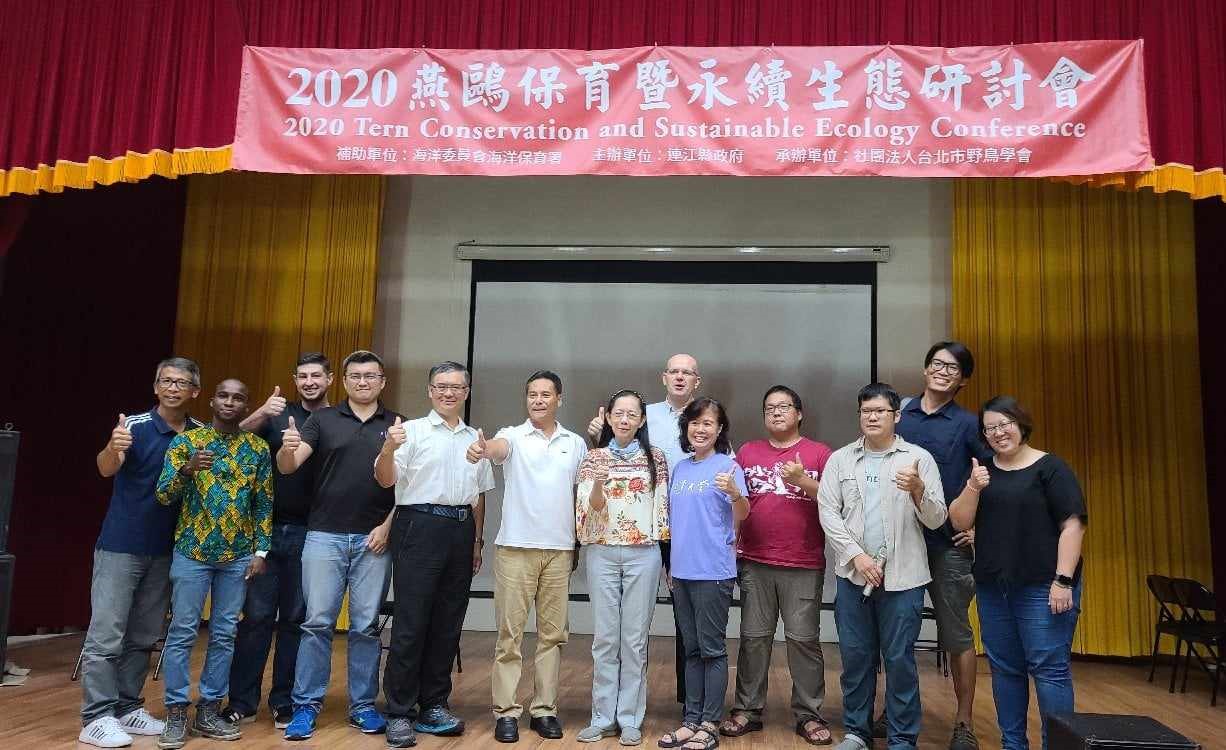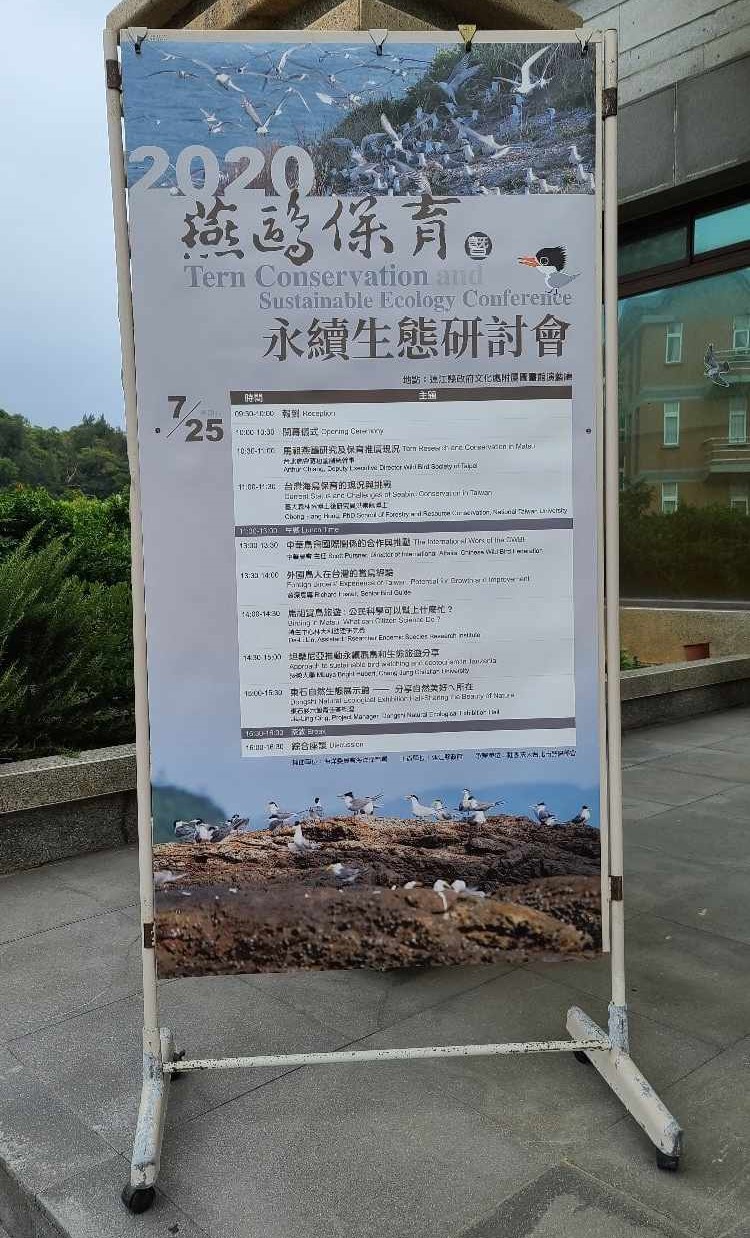Review of the 2020 Tern Conservation and Sustainable Ecology Conference

Speakers and Presenters at the event
By: Scott Pursner
On July 25, 2020, the Lienchang (Matsu) County government, with the support of the Ocean Affairs Council, held the 2020 Tern Conservation and Sustainable Ecology Conference in Nangan, Matsu, Taiwan. Organized by the Wild Bird Society of Taipei, it brought together government, academia, civil society, and the business community to look at the current conservation status of seabirds in Taiwan, especially the Chinese Crested Tern. It also explored local and international examples of sustainable ecotourism and environmental education.

The event schedule
Located off the coast of China's Fujian province, Matsu was not chosen at random to host the conference. In fact, it holds special significance for global seabird conservation. It was here in 2000 that the Chinese crested tern was rediscovered after having been considered extinct for over 70 years. The species is currently considered critically endangered by the IUCN and it is estimated that the global population numbers only about 100 individuals.
The morning sessions began with opening remarks from Lienchang County Magistrate Cheng-ying Liu, Ocean Conservation Administration Director General Julia Huang, and Wild Bird Society of Taipei President Robin Chang. This was followed by a presentation on the Chinese crested tern conservation work being done in Matsu by PhD candidate Arthur Chiang. The morning sessions were rounded out with a presentation by Dr. Chung-hang Hung. Taiwan's foremost Chinese crested tern researcher, he discussed the status and trends of seabirds in Taiwan and its outlying islands, mainly the Matsu and Penghu archipelagos. This includes Greater crested terns, Roseate terns, Little terns, Bridled terns, White-napped terns, and Brown noddys. Dr. Hung also talked on the potential negative effects developing offshore wind may have on these fragile populations.
The afternoon session saw presentations from a number of speakers focusing on themes such as wildlife conservation, sustainable ecotourism, and ecological sustainability.
The first presentation was done by Chinese Wild Bird Federation Director of International Affairs Scott Pursner. Mr. Pursner shared the work done by his organization in the international arena. He discussed the CWBF's major collaboration with the UK's Royal Society for the Protection of Birds on seabird bycatch and mitigation as well as his organization's use of social media in order to do international outreach. Lastly, he talked about how the CWBF wanted to coordinate more with National Taiwan University as well as the central and local government to promote and apply for Marine IBA status for areas important to seabirds, particularly in Matsu and Penghu.
The next set of presentations looked at developing sustainable ecotourism practices. First was a presentation from seasoned bird guide Richard Foster. Mr. Foster shared knowledge accumulated over his 10+ years of experience as a guide and offered some thoughts on how to further develop bird eco-tourism in Taiwan while remaining ecologically sustainable. He was especially interested in the idea of bolstering the status of Matsu's Dongyin Island, a place where hundreds of birds transit during the migration seasons. After this was a presentation by the Endemic Species Research Institute's Dali Lin. Mr. Lin explained how eBird can serve as an important tool to helping birders better understand what they are looking for, where they could find their targets and when to go on a bird tour. Chang Jung Christian University sophomore Bright Hubert next shared stories from his native Tanzania about working with Jane Goodall's Roots and Shoots Programme. He spoke about his experiences in working on swift conservation as well as working help locals develop sustainable ecotourism practices.

Mr. Scott Pursner presents on the CWBF's work on seabird bycatch

National Chang Jung Christian University sophomore Bright Hubert next shared stories from his native Tanzania about working with Jane Goodall's Roots and Shoots Programme
The last presentation came from Mrs. Jia Ling Qing, project manager at Aogu Wetland's Dongshi Natural Ecological Education Hall. She shared the history, ecology, and projects currently underway at the ecocenters. One of Taiwan’s five major ecocenters, the DNEEH is well known for its strong relationship with the local community. This has led to a number of interesting educational and outreach activities such as ecological surveys for children and a workshop on how to properly harvest and shuck oysters.
During the question and answer session that followed, representatives from government, academia, and the NGO sector discussed ways to move forward on both ecological conservation and sustainable ecotourism. Government officials from Matsu also pledged to do more to encourage sustainable practices and improve local support for conservation of seabirds and their habitats. It was a positive note on which to end this important conference.
